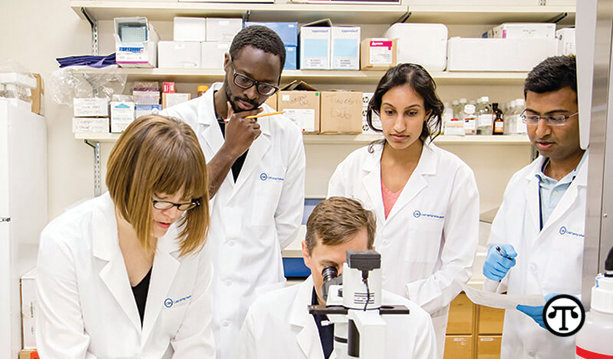
(NAPS)—If you or someone you love is ever among the more than 57,000 Americans expected to be diagnosed with pancreatic cancer this year, knowing a few facts may help improve your outcomes.
What It Is
The pancreas is an organ of the
digestive system located deep in the upper part of the abdomen, behind
the stomach and in front of the spine. Pancreatic cancer has a five-year
survival rate in just the single digits and has no early detection
tests and no effective long-term treatments. Unless the cancer is
surgically removed in its earliest stages, there is no cure, though
scientists say doctors may soon have access to a blood test that can
detect this and several other kinds of cancer.
There are, however, certain symptoms to be aware of such as loss
of appetite, abdominal pain that radiates to the back, new-onset
diabetes in someone over 50, jaundice, and itchy skin. Any of these
symptoms should be discussed with your doctor or medical team.
What Treatments Are Available
Surgery is the
most effective way to achieve long-term survival and has improved
significantly over the past two decades. Other treatment options include
chemotherapy and radiation, and in many cases, these treatments are now
being administered to patients prior to surgery to help shrink the
tumor so that the patient then becomes a surgical candidate. There are
also several ongoing clinical trials that are putting new treatment
options on the horizon. These trials involve immunotherapy, which uses
the body’s own immune system to help fight cancer, and targeted therapy,
which is aimed at the changes in cancer cells that help them grow,
divide and spread. There is also ongoing research to determine if
therapies used to treat other cancers will be effective in treating
pancreatic cancer.
What’s Being Done
The Lustgarten Foundation,
the world’s largest private funder of pancreatic cancer research, is
dedicated to curing this devastating disease by funding scientific and
clinical research related to the diagnosis, treatment and prevention of
pancreatic cancer; providing research information and clinical support
services to patients, caregivers and individuals at high risk; and
increasing public awareness and hope for those dealing with this
disease.
From basic science to the clinic, Lustgarten-funded researchers
are at the forefront of the most promising breakthroughs. “Our
researchers are achieving significant milestones in understanding and
treating this disease and in detecting it earlier—advancements that are
already improving patient outcomes and enabling some patients to live
longer,” said Kerri Kaplan, President and CEO of the Lustgarten
Foundation. The Lustgarten Foundation is the only non-profit in the
world to have four labs dedicated completely to pancreatic cancer
research, which means more resources, time and talent are being put
toward this disease, where they are urgently needed.
How You Can Get Involved
Join one of the
nearly 300 events throughout local communities that are held annually or
register to participate in one of the Lustgarten Foundation’s
Pancreatic Cancer Research Walks taking place in more than 30 locations
across the country. Thanks to separate funding to support administrative
expenses, 100 percent of every donation goes directly to pancreatic
cancer research.
Where To Learn More
To learn more about the
Lustgarten Foundation’s research program, as well as treatment options
and patient resources, or to donate or get involved, visit www.lustgarten.org or call toll-free 866-789-1000.

“The world’s largest private funder of pancreatic cancer research, the Lustgarten Foundation, is dedicated to curing this devastating disease—and you can help.http://bit.ly/2GDhD4y”
